Berries come in many shapes and forms and are beloved around the world. Some of them are also considered superfoods because they are so damn healthy.
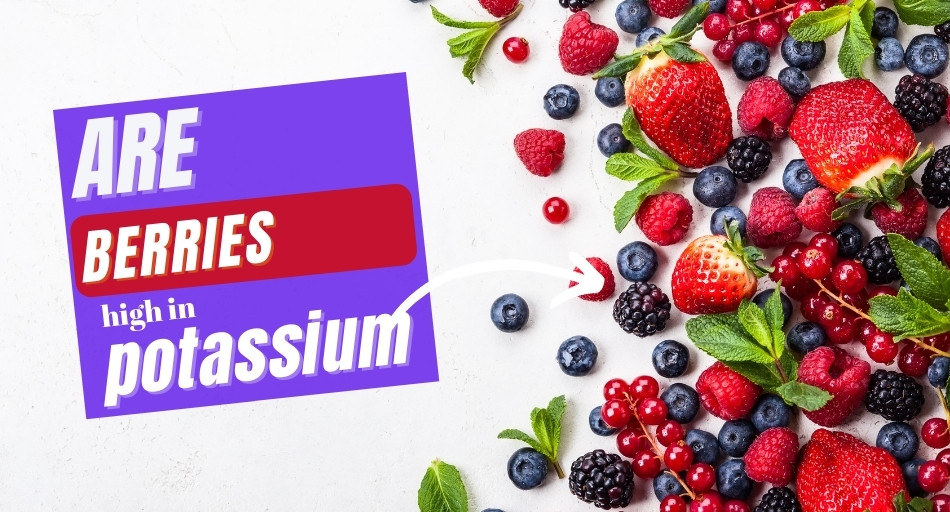
However, today we're taking a closer look at how much potassium the most popular berries have.
Table of Contents
- Are berries high in potassium?
- Are strawberries high in potassium?
- Are blackberries high in potassium?
- Are blueberries high in potassium?
- Are cranberries high in potassium?
- Are raspberries high in potassium?
- Are açai berries high in potassium?
- Are boysenberries high in potassium?
- Are lingonberries high in potassium?
- Are elderberries high in potassium?
- Are goji berries high in potassium?
- Are blackcurrants high in potassium?
- Are redcurrants high in potassium?
- Conclusion
Are berries high in potassium?
Berries, in general, aren't considered to be high-potassium fruit. However, blackcurrants, redcurrants, elderberries, and dried goji berries are rather high in potassium. On the lower side of potassium content, we have blueberries, cranberries, and lingonberries. All other berries fall somewhere in the middle with their potassium content.
Are strawberries high in potassium?
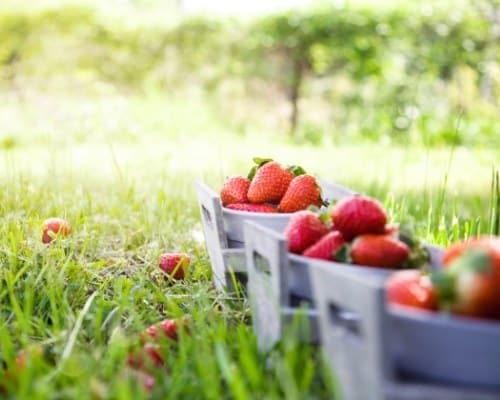
3.5 oz (100 g) of strawberries contains 153 mg of potassium. A serving of strawberries, 8 large strawberries or around 144 g, contains 220 mg of potassium. Although that may seem like a lot, it's only 5% of your recommended daily intake of potassium (4,700 mg).
They have many more benefits than just having potassium in them. First of all, they are rich in antioxidants, low in fat, and have around 11% of dietary fiber per cup.
Also, strawberries can help you lower your blood sugar levels by slowing down your glucose metabolism and reducing the risk of type 2 diabetes and weight gain.
Can You Check Your Potassium Level at Home?
Are blackberries high in potassium?
3.5 oz (100 g) of blackberries contains 162 mg of potassium. A serving of blackberries is one cup or around 144 g and contains 233 mg of potassium. That's a respectable amount but accounts for only around 5% of your recommended daily intake of potassium (4,700 mg).
There is only a very slight difference in terms of potassium content between blackberries and wild blackberries. That's why both kinds can be integrated into a low-potassium, kidney-friendly diet.
Blackberries are also considered to be a superfood because of their low-calorie content yet high nutrition value.
Are blueberries high in potassium?
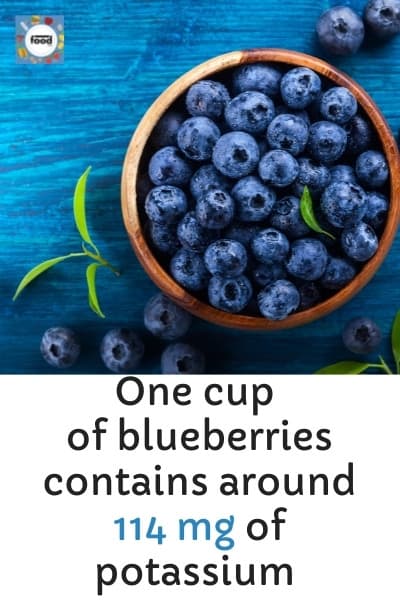
Blueberries are low in potassium and a 3.5 oz (100 g) of blueberries contains only 77 mg of potassium. A serving of blueberries is one cup or around 148 g and contains only 114 mg of potassium or around 2.5% of your recommended daily intake of potassium (4,700 mg).
Therefore, blueberries are a perfect berry for those following a low-potassium diet. However, even if your goal is to get as much potassium as you can from your food, you shouldn't dismiss blueberries.
Like other berries, they have valuable antioxidants and a fair amount of fiber as well as helping lower blood pressure and reduce the levels of oxidized LDL cholesterol.
Are cranberries high in potassium?
Cranberries are fairly low in potassium as a serving of cranberries (1 cup (100 g) of whole berries) only contains around 80 mg of potassium. That's less than 3% of the recommended potassium intake for adults.
Like blueberries, cranberries are an excellent fruit for low-potassium diet followers. For them, and others, they are a great source of vitamin C, E, and B5 as well as manganese and fiber. All the while having low calories.
Are raspberries high in potassium?
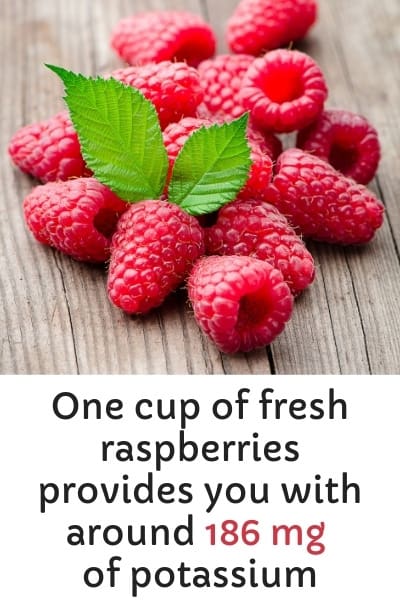
Raspberries have a similar potassium content to strawberries and blackberries - 151 mg per 3.5 oz (100 g). A single serving (1 cup/123 g) has slightly more potassium - 186 mg. That's still under 200 mg which isn't a lot and is less than 5% of the recommended daily dose.
Because nearly all calories in raspberries come from carbohydrates, including sugar and fiber, a serving of raspberries provides you with 8 g of fiber, making them a great source of this nutrient. They are also loaded with manganese and vitamin C.
Are açai berries high in potassium?
A typical 3.5 oz (100 g) of açaí berries contains 105 mg of potassium. That really isn't a lot as it constitutes only around 2% of your recommended daily intake of potassium (4,700 mg).
Açaí berries are typically consumed in smoothies, as part of açaí bowls, or as a frozen puree, dried powder, or even juice. We don't typically eat them as fresh berries.
These versatile berries were enshrouded in controversy in the early 2000s and were even ranked as the number one scam by the FTC in the United States.
Are boysenberries high in potassium?
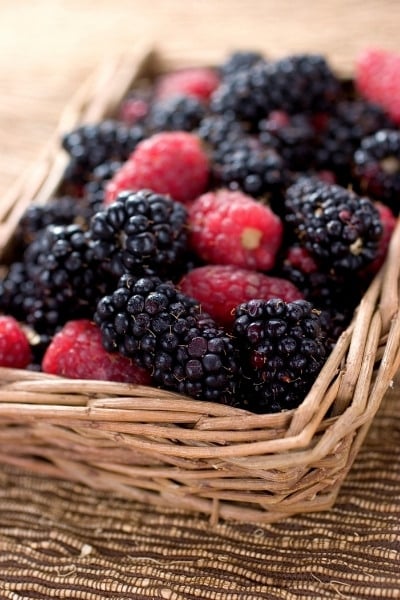
100 g (3.5 oz) of frozen boysenberries contain 139 mg potassium which isn't much and is in line with other berries such as raspberries, somewhat strawberries, and blackberries. A cup of boysenberries (132 g) has 183 mg potassium and can partly boost your potassium intake.
Boysenberry is a hybrid of the European blackberry (Rubus fruticosus), European raspberry (Rubus idaeus), American dewberry (Rubus aboriginum), and loganberry (Rubus × loganobaccus).
Are lingonberries high in potassium?
Lingonberries are a low-potassium fruit and berry because 3.5 oz or 100 g only contains around 90 mg of potassium. That's rather low and can be compared to the potassium content of cranberries and açai berries.
Lingonberry is native to Scandinavia (northern Europe) and is known by different names, such as foxberry, cowberry, partridgeberry, mountain cranberry, bearberry, redberry, and Alaskan lowbush cranberry.
Are elderberries high in potassium?
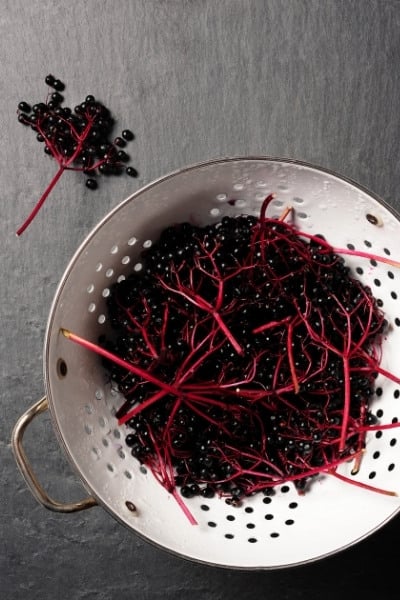
Elderberries have the most potassium at around 280 mg per 100 g (3.5 oz) and are an excellent source of potassium if you want to boost your intake. One cup (146 g) has 406 mg which is almost 10% of the daily recommended potassium intake for adults.
They are also full of vitamin C, B6, iron, and other beneficial nutrients. They are 80% water, 18% carbohydrates, and less than 1% of protein and fat.
Are goji berries high in potassium?
Goji berries are generally eaten dried and therefore their potassium content is very high similar to raisins and other dried fruit. 3.5 oz (100 g) of dried goji berries has 1,132 mg of potassium which is a quarter of your recommended daily potassium intake.
Of course, almost no one is going to eat that much at once. When we look at a smaller serving size of 28 g, it contains 317 mg potassium which is still a lot and would give you quite a boost.
Consequently, anyone on a low-potassium diet should skip goji berries or consume a lesser amount of these delicious berries.
Are blackcurrants high in potassium?
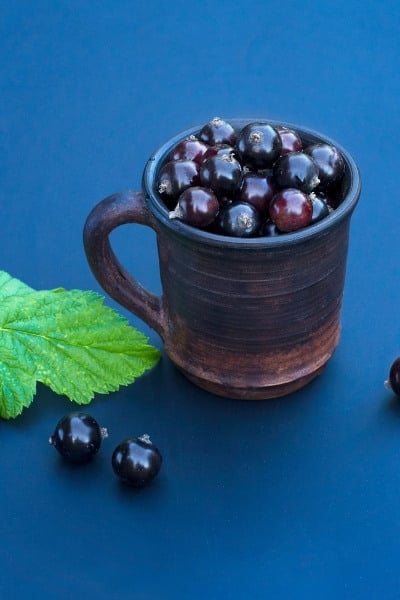
Blackcurrants, or simply currants, are high-potassium berries that contain 322 mg potassium per 100 g or 3.5 ounces. A one-cup serving of currants has 361 mg and is almost 8% of the recommended daily intake.
This berry is notable for its extremely high vitamin C content of which it has 218% of daily value per 100 grams. Apart from vitamin C, blackcurrant is also high in manganese, iron, magnesium, phosphorus, and other important nutrients.
Are redcurrants high in potassium?
Redcurrants, which are known for their tart flavor, have 275 mg potassium per 100 g, or 308 mg per one-cup serving. That makes them rather low in potassium as you're hardly going to eat that many redcurrants in one sitting.
Although redcurrants don't have as much vitamin C as blackcurrants, they do pack quite a lot. Per 100 grams, redcurrants have almost 50% of vitamin C's daily value. Other than that, there's also vitamin K and manganese in notable quantities, but also other beneficial nutrients.
Conclusion
Now that we covered all the most popular berries, we can see that the potassium content differs quite a lot. And while blueberries and cranberries don't have much potassium in them, blackcurrants, redcurrants, and dried goji berries do pack quite a potassium boost.
Sources: U.S. DEPARTMENT OF AGRICULTURE, USDA
Don't know which foods are high in potassium? Read our article, 15 Best Food Sources of Potassium. We also have a guide to this important mineral: Potassium 101: All You Need To Know About Potassium.
